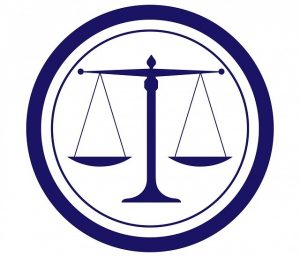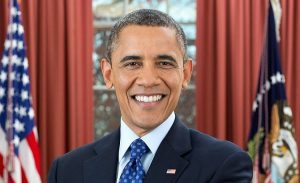Those of us who lived through the first Trump Administration (January 2017-January 2021) will remember some of the players from those years (and the years immediately thereafter as Trump spread the Big Lie and encouraged violent supporters to storm the Capitol on January 6, 2021).  Some of those actors are still around supporting Trump in his second term; other supporters are in places such as jail cells; and some of those who opposed Trump are caught up in his retribution campaign.
Some of those actors are still around supporting Trump in his second term; other supporters are in places such as jail cells; and some of those who opposed Trump are caught up in his retribution campaign.
It is instructive to see what has transpired with a sampling of these individuals in the ensuing years. Their fates and circumstances show us, first, how the rule of law works (sometimes well, sometimes not) and, second, how authoritarianism is entering our system. In addition to the fact, as many have mentioned, that elections have consequences, it is also crucial to learn more specific lessons about the importance of character when choosing leaders and voting even if the candidates aren’t perfect. If democracy is worth preserving, we need to take seriously the issues of character, reputation, courage, and integrity.
Rudy Giuliani
The man we once called “America’s Mayor,” Rudolph Giuliani of New York, is one of the best-known of Trump’s circle. He is also one of the most disgraced public figures in recent history.
 He was able to spend years living a most enviable lifestyle, between his time as NYC mayor and serving as Trump’s personal lawyer. “He was earning millions of dollars each year in fees from consulting and spending it almost as quickly.” Now, however, he has been disbarred from practicing law in New York and Washington, DC, was criminally charged in Arizona and Georgia (although the Arizona “fake electors” case has run into problems), and has been subjected to numerous defamation lawsuits for lies he told following the 2020 election.
He was able to spend years living a most enviable lifestyle, between his time as NYC mayor and serving as Trump’s personal lawyer. “He was earning millions of dollars each year in fees from consulting and spending it almost as quickly.” Now, however, he has been disbarred from practicing law in New York and Washington, DC, was criminally charged in Arizona and Georgia (although the Arizona “fake electors” case has run into problems), and has been subjected to numerous defamation lawsuits for lies he told following the 2020 election.
In a most Trumpian series of legal maneuvers, Giuliani delayed and delayed complying with numerous judgments against him, drawing the ire and several contempt charges from various judges. However, by February 2025, he had finally settled with wronged Georgia election workers Ruby Freeman and her daughter, Wandrea “Shaye” Moss. While the original amount awarded to the two women after a December 2023 jury trial was $148 million in damages, the award was subsequently reduced to $146 million by a judge. However, a court filing indicated that Giuliani would owe interest and attorneys fees in addition.
In September 2025, Giuliani settled “a long-running defamation lawsuit with Dominion Voting Systems over lies he told about the result of the 2020 presidential election.” The details are confidential, but the original lawsuit, filed in 2021, was for $1.3 billion. It cited over “50 instances in which [Giuliani] made false or defamatory statements insisting the election was rigged against Trump.”
Has all of Giuliani’s blind loyalty to Trump been worth it to him? Does he feel any amount of guilt or remorse for his actions that have greatly harmed others? (It seems doubtful, given the facts over the past few years.) Whatever the answer, the American public should wonder what makes someone like him “tick.” How could a public figure who seemed to have so much going for him (although his history is anything but flawless) give up so much of his riches, fame and reputation in service to a convicted felon and psychopath like Donald Trump? What lessons can we take away from the Rudy Giuliani story, not only about motives and individual character but also about our discernment about political candidates and public figures?
January 6 felons who have reoffended
As soon as Trump returned to the Oval Office in January 2025, he pardoned all of the January 6th defendants. (Giving blanket pardons was something several allies, including Vice President JD Vance, had advised against. But Trump, perhaps identifying with fellow convicted felons [?] turned true justice on its head, remarking that they had “been destroyed” and that the work the prosecutors had done to convict them “has been outrageous.”)
 According to Politico, “The Justice Department charged about 1,600 perpetrators for their role in the mob, including 600 accused of assaulting or impeding police during the chaos. About 1,100 of them pleaded guilty or were found guilty at trial. The other roughly 500 cases were still pending until Trump’s clemency.” This record of charges and convictions should be viewed by law-abiding Americans as an enormous success story, and we should be grateful for this monumental work.
According to Politico, “The Justice Department charged about 1,600 perpetrators for their role in the mob, including 600 accused of assaulting or impeding police during the chaos. About 1,100 of them pleaded guilty or were found guilty at trial. The other roughly 500 cases were still pending until Trump’s clemency.” This record of charges and convictions should be viewed by law-abiding Americans as an enormous success story, and we should be grateful for this monumental work.
Perhaps not surprisingly, at least 10 insurrectionists have gone on to reoffend and find themselves back behind bars. Some of these include Andrew Taake, rearrested on charges of soliciting a minor; Edward Kelley in Tennessee, who was sentenced in July to life in prison for “conspiracy to murder federal employees; solicitation to commit a crime of violence; and influencing a federal official by threat;” David Daniel, who is in custody for 2024 child sexual abuse material charges; Theodore Middendorf, in prison for sexually assaulting a seven-year-old; and Taylor Taranto, convicted in May 2025 for illegal gun possession and making a threat to blow up the National Institute of Standards and Technology.
Fortunately, Trump cannot pardon criminals for state crimes, and he has shown no interest in pardoning any reoffenders for federal crimes if doing so does not serve his purpose. However, as we have come to expect, Trump is not done with January 6th all these years later: it is absolutely chilling that he is waging war on those in the Department of Justice who led the “righteous” and highly successful prosecutions. Many of those DOJ employees who have been fired or resigned are suing; we acknowledge their patriotism and dedication, applaud their courage and wish them every success.
Harry Dunn
For all intents and purposes, Harry Dunn is an American hero. Dunn joined the US Capitol Police in 2008 and was on duty on January 6, 2021. Even though he was a a certified crisis negotiation and crisis intervention officer, he was not only physically attacked during the violent, Trump-inspired insurrection but was also called racial slurs (the first time that had happened to him while wearing his uniform) and attacked for being Black. Dunn gave riveting testimony to the House Select Committee on January 6 in July 2021 and ultimately resigned from the Capitol Police in 2023. He then published The New York Times best-seller about his experiences, Standing My Ground: A Capitol Police Officer’s Fight for Accountability and Good Trouble After January 6th, later that year.
Dunn’s patriotism and dedication to our country did not end there, however.  He ran for office in 2024, raising over $5.7 million for a run for Congress in Maryland. He lost to Rep. Sarah Elfreth (D) – but came in second in a Democratic field of 22 candidates. He then campaigned for Joe Biden and Kamala Harris in swing states, founded Democracy Defenders PAC, received the Presidential Citizens Medal from President Biden, and speaks out frequently about the dangers of Trump and his cronies.
He ran for office in 2024, raising over $5.7 million for a run for Congress in Maryland. He lost to Rep. Sarah Elfreth (D) – but came in second in a Democratic field of 22 candidates. He then campaigned for Joe Biden and Kamala Harris in swing states, founded Democracy Defenders PAC, received the Presidential Citizens Medal from President Biden, and speaks out frequently about the dangers of Trump and his cronies.
If this is not courage in the face of extreme adversity, what is?
Victims of Trump’s revenge campaign
Trump promised the country (and the world) that he would exact retribution on those who have harmed, attacked, prosecuted, disagreed with him or whom he considers his enemies. One can imagine that his animosity toward Joe Biden and his family stems, at least in part, from the fact that Biden beat him in the 2020 presidential election. Trump has animosity toward Barack Obama – one can surmise – because he is not only Black but also significantly more popular than thin-skinned Trump.  Trump hates the Clintons (even though he once socialized with them) because Hillary – a strong woman – had the audacity to run against him (and call out his lies) in the 2016 election cycle. New York Attorney General Letitia James is in his sights: she is Black, she is a strong woman, and she led a successful prosecution against Trump for fraud. Trump has attacked Manhattan District Attorney Alvin Bragg for predictable reasons: he is not only a Black man but an official who also successfully prosecuted Trump in the falsifying business records case that resulted in Trump’s famous mug shot and being fingerprinted as a convicted felon. Trump hates Georgia prosecutor Fani Willis – another strong Black woman who was bringing criminal charges against him.
Trump hates the Clintons (even though he once socialized with them) because Hillary – a strong woman – had the audacity to run against him (and call out his lies) in the 2016 election cycle. New York Attorney General Letitia James is in his sights: she is Black, she is a strong woman, and she led a successful prosecution against Trump for fraud. Trump has attacked Manhattan District Attorney Alvin Bragg for predictable reasons: he is not only a Black man but an official who also successfully prosecuted Trump in the falsifying business records case that resulted in Trump’s famous mug shot and being fingerprinted as a convicted felon. Trump hates Georgia prosecutor Fani Willis – another strong Black woman who was bringing criminal charges against him.
Let us be clear. Trump goes after his fellow citizens not merely because he doesn’t like something they’ve done or said; he seeks revenge against people who get in the way of his anti-democratic, illegal and unconstitutional actions. He wants power in all ways, at all levels, to do whatever he wants.
Now that he has that nearly limitless power – thanks to an extreme right-wing Supreme Court and an almost completely complicit Republican Congress – he has been able to go after various “enemies” in very significant, damaging ways.  By highjacking the Department of Justice, he has managed to secure an indictment against former FBI Director James Comey on two counts. In some ways, Comey is one of the lucky ones: he has the strength of character and financial resources to fight back, which he vows to do.
By highjacking the Department of Justice, he has managed to secure an indictment against former FBI Director James Comey on two counts. In some ways, Comey is one of the lucky ones: he has the strength of character and financial resources to fight back, which he vows to do.
In addition, Trump has removed security coverage for figures such as his one-time national security advisor John Bolton, Mark Milley, a former chairman of the joint chiefs of staff, former Secretary of State Mike Pompeo, and highly-respected former National Institute of Allergy and Infectious Diseases Director, Dr. Anthony Fauci. While we may not agree with the policies or stances of these individuals, they were nevertheless public servants, and it is beyond the pale that the President has left them vulnerable.
These attitudes and actions are part of Trump’s longstanding playbook, stemming from his association with (and mentorship by) infamous attorney Roy Cohn early in his life, from his antisocial personality disorder, and from his lifelong racism and misogyny. Trump has had enormous success in convincing millions of Americans that all of his animosity and attacks are justified. What does this success say about the attitudes, perspectives, politics and character of those millions of our fellow citizens? It would perhaps be easy to paint all Americans with whom we disagree with the same brush, but there are undoubtedly nuances and a plethora of reasons for supporting Trump. For now, let us all consider, for just a moment, what a politics of revenge at the highest levels of government means for the health, safety and prosperity of law-abiding Americans…
Bottom line observations
There are many take-aways from examining the “afterlives” of some figures from the first Trump Administration as we slog along in the second.
First, so far, the rule of law has not totally been compromised. Throughout the US, local and state law enforcement agencies are still on the job arresting and successfully prosecuting lawbreakers, juries are convicting them, and judges are handing down sentences. May this continue for decades to come!
 Second, a book like Harry Dunn’s would not be a best seller if millions of readers were not reading or being inspired by it. And we know that there are dozens of other recent titles that are also feeding our souls and holding courage up to the light.
Second, a book like Harry Dunn’s would not be a best seller if millions of readers were not reading or being inspired by it. And we know that there are dozens of other recent titles that are also feeding our souls and holding courage up to the light.
Third, there is rot at the highest levels of our government. We must ask what each of us can do in the face of that reality.
Fourth, on the other hand, there are many courageous Americans among us from whom we can take inspiration. We must find ways to support them in whatever ways possible.
Finally, and relatedly, those courageous fellow citizens are demonstrating that fighting back is not only possible but highly advisable. Bullies can back down and often do (even when they claim victory). Fighting back is especially advisable when it can be done in community, in large numbers, and in solidarity with like-minded people. Those of us who do not want a king – do not want our democracy destroyed – are not alone; we must remember that as the fight continues.
